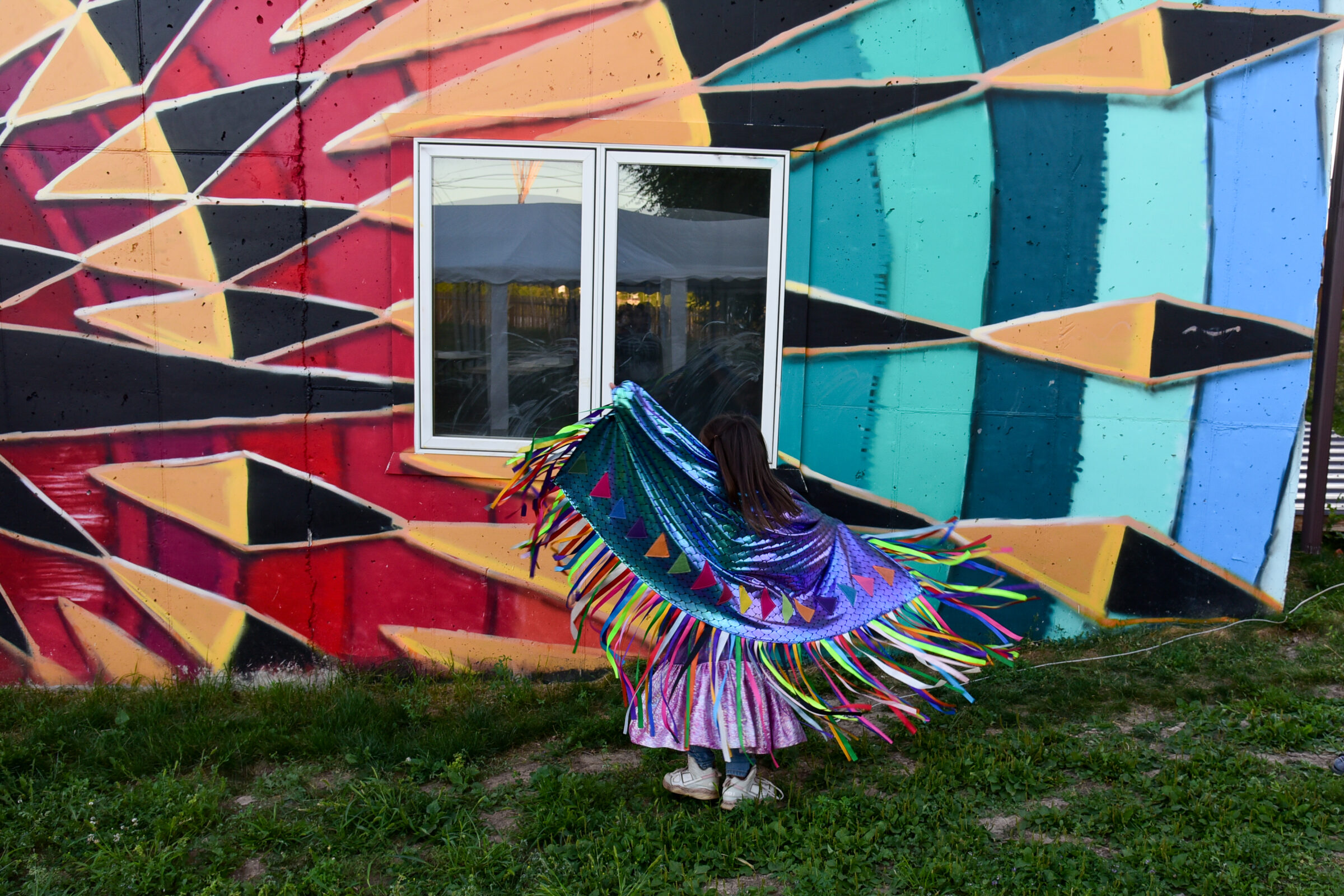
A child dancing at Wambli Ska Teen Center in Rapid City.
It’s easy to feel that you belong at nonprofit Wambli Ska Okolakiciye. It may start with trying on a fancy shawl, choosing a dance style or crafting traditional beadwork.
From there, dancing in a weekly wacipi, or powwow, creates confidence and a sense of community for kids, teens, and their families. Based in Rapid City, Wambli Ska uses cultural practices to provide structure, stability and love to Native American youth.
Janet and Deonne Kahler, a mother and daughter pair, supported this mission by funding a giving circle grant to purchase supplies for regalia craft nights in 2023. With a wide selection of supplies—feathers, bells, beads, ribbons, and more—kids and teens build one-of-a-kind outfits to showcase at the powwow.
The dancers’ confidence tends to expand when the community celebrates their self expression. JC Killspotted, MC of the weekly powwow, has witnessed this transformation. “People who come here may not know how to identify themselves,” he said, but after getting involved, “they break out of that little shell, the defense mechanism, and soon, the kid who wasn’t talking is over there singing.”
“There’s more at stake than just, ‘Hey, let’s dance.’ It’s a mindset on actually belonging and actually feeling comfortable within your skin,”
Chris White Eagle, former president of Wambli Ska Okolakiciye.
The creative freedom that comes with selecting regalia items also builds confidence, said Caylee Martinez, Youth Advocate at Wambli Ska. “I think it’s beautiful because once they get confident in their regalia, then they start to say, ‘I want to make my bells, I want to make my belt, I want to start sewing and beading and make my own moccasins,’” Martinez said.
Many kids find mentors and positive role models in the community. Martinez remembers how she grew up learning how to dance alongside older girls who led by example. “Seeing the older ones gave me inspiration, like, ‘I want to be just like her,’ which made me want to keep in touch with my culture,” she said.
Once kids and teens start dancing, they come back regularly to improve their outfits and their skills. Eventually, it’ll come time for them to mentor the next generation. At Wambli Ska, it’s clear that the real impact extends far beyond bells and beads. Just like in dancing, one step always leads to another.